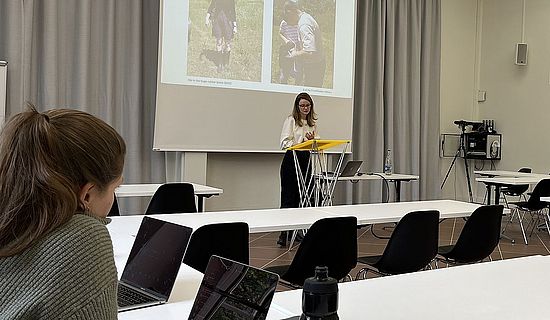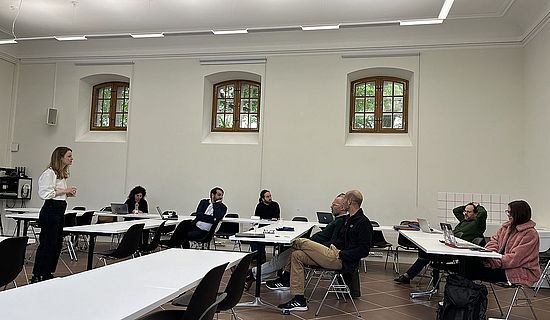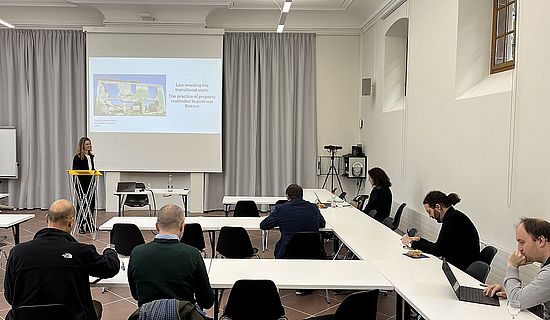/ News, Events
Working Lunch with Agathe Mora on property restitution in post-war Kosovo



Agathe Mora gave a presentation titled “Law-Washing the transitional state: the practice of property restitution in post-war Kosovo” during a working lunch held on 26 April 2024. The event was organized by the Institute for European Global Studies.
In the presentation, Agathe Mora introduced the audience to the situation in post-war Kosovo at the end of the 1990s and the practice of property restitution in the aftermath of the conflict. Based on extensive fieldwork in the region, Mora analyzed the work of the Kosovo Property Agency (KPA), a quasi-jurisdictional and constitutionally independent institution set up by the international community after the war as a transitional justice mechanism in order to organize the restitution of property to persons who had lost their property during the war. The restitution of property, and mainly of land, was seen at the time as a necessary precondition for the protection of human rights and the re-establishment of the rule of law – and to thereby fulfil the criteria for international recognition as a sovereign state and possible future accession to the European Union.
Looking at these processes from a legal anthropological perspective, Mora developed the argument that the transitional justice mechanisms set up in Kosovo after the war to promote rule of law and human rights resulted in what can be described as “law-washing”: a process where in a post-conflict setting legal procedures put in place to ensure that legal standards and rights are (re-)established and respected become a mere formalistic performance of bureaucrats, devoid of substantive justice considerations. As Mora convincingly argued, the powerless and underfunded KPA is a paradigmatic example of such mechanisms that ultimately hollows out the promise of law and human rights. Such law-washing is not the exception, but is inherent to the state of exception in which transitional justice mechanisms take place.
In the Q&A, the discussion focused on whether the injustices Mora observes in her research are inherent to the law itself and whether law is an instrument that can ever serve to right past wrongs. Moreover, the discussion revolved around the interests of the different actors involved in the process and their responsibilities in failing to achieve justice.
Agathe Mora is Assistant Professor in anthropology and international development at the University of Sussex, where she convenes the MA in Human Rights. She is also an editor at Allegralaboratory.net and a convenor of the EASA network LAWNET. She conducts research within international human rights organizations in Kosovo, the EU and the UN. Her first book, “Working for Human Rights: Property Restitution and Rule of Law Interventionism in a Black Hole State” is under contract with Stanford University Press. In 2015, she was awarded the Arthur Maurice Hocart Prize of the Royal Anthropological Institute of Great Britain and Ireland.



